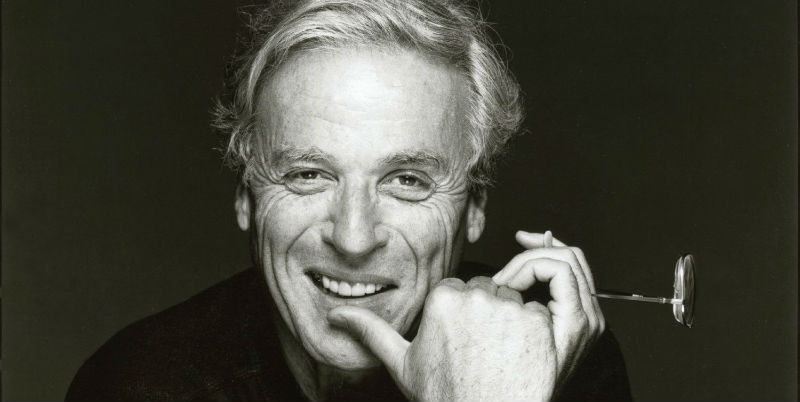Blueprints: William Goldman In Memoriam
 Thursday, November 29, 2018 at 11:58PM
Thursday, November 29, 2018 at 11:58PM This week, Jorge's screenplay column celebrates the work of one of the most versatile and distinguished screenwriters in cinema, who passed away on November 16th.

Most artists can only hope to leave at most one iconic piece of legacy behind after they pass way. One great novel, one fantastic painting, one life-changing movie. There are few who can produce more than one. I think we can count with one hang those whose body of work can be considered unequivocally influential and unironically iconic.
William Goldman was one of those artists. Winner of two Academy Awards for Best Screenplay (one original, and one adapted), he left behind an oeuvre that spans across decades, genres, and mediums that most writers can only dream of. Let’s take a look at his most well-remembered screenplays, most of which will be embedded in the collective cinematic culture for generations to come...
- His first commissioned screen credit was for 1965’s Masquerade, starring Cliff Robertson and Jack Hawkins.
- He won his first Academy Award in 1969 for his original screenplay for Butch Sundance and the Cassidy Kid. You can read that whole script here.
- He wrote the script for the original version of The Stepford Wives in 1975, which has now grown to become a cult classic. It would be one of his first immersions into the horror and thriller genre, which he built a niche in with his collaborations with Stephen King.
- In 1976 he adapted one of his own novels for the first time with Marathon Man.
- He won his second Academy Award, this time for Adapted Screenplay, for All the President’s Men in 1976, based on the book by Carl Bernstein and Bob Woodward. You can read the whole script here.
- In 1987 he adapted one of his own novels once again in what would become one of his most endearing and beloved films with The Princess Bride. The screenplay has perhaps some of the most quotable lines in cinematic history.
- He did uncredited script work for 1988’s Twins, the comedy vehicle starring Arnold Schwarzenegger and Danny DeVito.
- In 1990 he wrote the adaptation for Stephen King’s Misery, which won Kathy Bates her Academy Award for Best Actress. It would be first of four Stephen King adaptations he’d do in his lifetime: he was a consultant for 1995’s Dolores Claiborne, also starring Bates, and wrote the scripts for Heart in Atlantis in 2001 and Dreamcatcher in 2003.
- He was a consultant for two of the most well-remembered and influential screenplays of the 90s, Aaron Sorkin’s A Few Good Men in 1992, and Good Will Hunting, written by Ben Affleck and Matt Damon in 1997.
- His last screen credit as a writer as 2015’s Wild Card, starring Jason Statham and also based on his own novel.
- Besides all his produced work, he had several projects that never came to fruition: a screen adaptation of Flowers for Algernon, an adaptation of the jail escape novel Papillon, a new version of the classic Grand Hotel, a different take on what became the space movie The Right Stuff, and an unused script for Mission: Impossible 2.
What is your favorite William Goldman-penned script or movie?



Reader Comments (6)
The Princess Bride is his crowning achievement. It is the perfect script. It has all of the things you want in a film. Adventure, action, comedy, romance, sword-fighting, battle of wits, ROUS, rhyming giants, six-fingered man, and true love as it's told from an old man to his grandson. As you wish...
I think he was one of the best writers, period.
I used to read his deeply opinionated, highly subjective, infinitely enjoyable articles in New York Magazine about 'handicapping the Oscar'. I still remembered how he wrote about the best performance by a "man, woman or child" in 1998 was Fernanda Montenegro in Central Station and how he thought that Daniel Day-Lewis was the best actor in 1989 and that this kind of performance does not win the award.
He said a few things in subsequent publications that I wholeheartedly disagree but he was a compelling writer it's hard to resist reading his amusing diatribes.
Misery of course since he advocated for the casting of Kathy Bates.
He had his fair share of lemons (Year of the Comet...oof!) but what an imagination he had! That he only was nominated for two Oscars is remarkable — no nomination for The Princess Bride, none for Marathon Man or Misery. R.I.P.
P.S. "Butch Sundance and the Cassidy Kid" sounds like a gay porn parody. ;-)
I think my favourite screenplays of his are the two that won him his Oscars. Butch Cassidy and the Sundance Kid has humour and charm in abundance. All the President's Men makes a murky period in American politics intelligible - and eciting - to a mainstream audience. Both screenplays have unconventional structure - but not too unconventional, if you see what I mean - and both are full of castable parts and sayable dialogue (an underrated quality in movie writing!).
Misery, The Princess Bride, Marathon Man all have the Goldman touch as well.
I also cherish his books on the industry: Adventures in the Screen Trade, Which Lie Did I Tell? and his priceless Hype and Glory, a wonderful account of his year as a judge at both the 1988 Cannes Film Festival (his analysis of the voting is fascinating) and the Miss America contest (not intrinsically interesting to me but made interesting by his glorious prose). Very touching book, too, as his marriage break-up is happening in the background.
And as an interviewee he is endlessly fascinating to listen to.
R.I.P.
A great screenwriter, but a wonderful novelist as well. Marathon Man and Magic are such thrilling reads. His famous quote about the film industry: "Nobody knows anything." What a legacy.